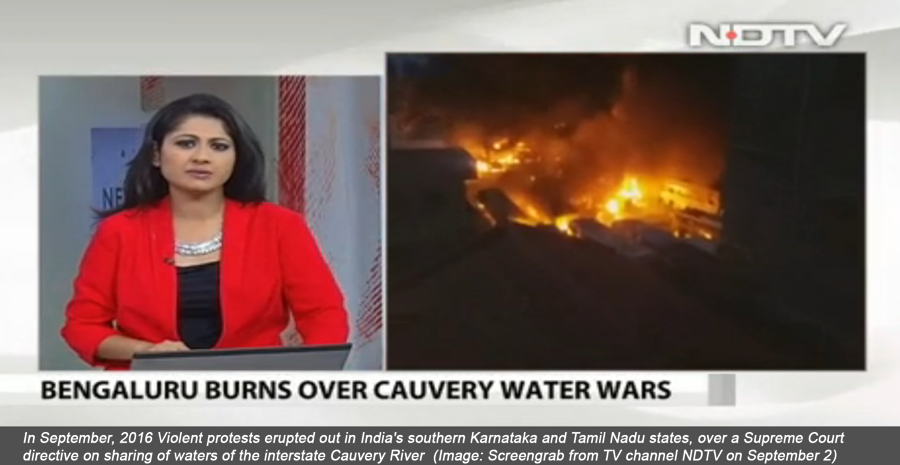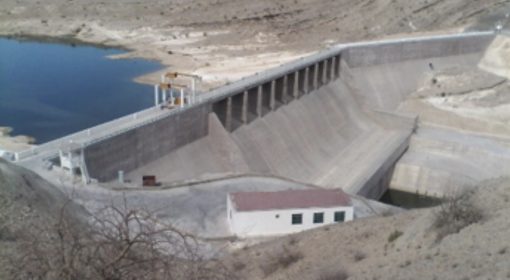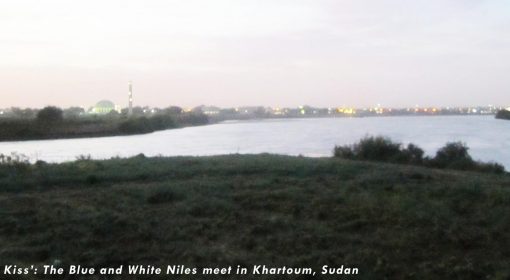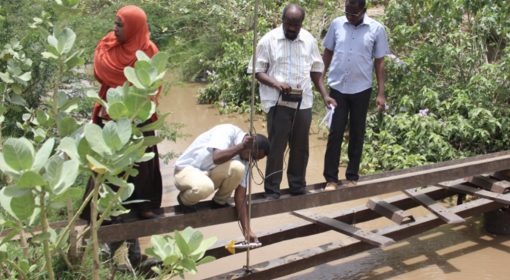Politics and Water
Posted by Frank van Steenbergen
September 12, 2016

We all like ‘democracy’, yet we dislike ‘politics’. It is exceptional to hear something positive being said about politicians. Politics generally has the connotion of power games, divisiveness, incompetence, short-sightedness, vanity, polarization. That is remarkable to say the least, because it is hard to see a democratic system without politicians.
With water it is not different. Politics in water is seen as a problem and in fact it often is. The negatives concern for instance political appointees in water organizations; political interference in water user organizations; politicians messing around with water allocations and political rallies held against what are often simple positive improvements such as a modest adjustment of a water service charge.
There are a number of reasons that explain why politicians interfere unproductively. One is the need for political drama and visibility. An example concerns some of the interstate water conflicts in India where disputes over shared rivers have almost brought states into armed conflict. One researcher discovered that whenever there was a weak central government in India, the politicians of the states that were at loggerheads would often ask the central government to mediate and resolve. They did so knowing that a weak central government would not be able to deliver a settlement. When there was a powerful central government the same state political leaders would not propose, fearing that the conflicts on the shared rivers would be resolved by the strong central leadership and there would be no political issue left to rally followers around with. A similar issue is with the Kalabagh Dam in Pakistan – the technically most ideal location for a new hydropower dam in the country, badly needed as the sediment delta in the main Tarbela dam has been dangerously close to the turbines for over a period of nearly fifty years. Yet as the Kalabagh location is in Punjab Province, politicians (especially from downstream Sindh Province) tend to shine in raising protests and always avoid discussion, let alone negotiation. What happens here is ‘politicization’ creating political drama out of issues that could have been resolved quietly otherwise.
Another reason why politicians are sometimes forced to be the nuisance is what may be called the ‘vacuum pull’. This came out in a recent training in Sudan that discussed how to decide the best location for water projects. In the training a systematic approach was developed to identify such best locations for local water infrastructure. Local politicians that attended the training were very happy with the systematic approach. They explained that they are now expected to decide in favour of their followers and show their strength. However, being able to refer to systematic rules or a plan, they said, ‘would protect them from themselves.
In water politics, there is also a third area of interference. This third area is morenasty. It concerns politicians taking control over resources – jobs, position, land, water – This is far harder to break and in fact (strange it may sound) in some cultures (Pakistan is an example) this nastiness is what politicians are naturally expected to do. Their followers follow them not for their bright ideas or societal leadership but cynically to benefit from their leaders’ control over resources. This can be broken by ensuring politicians do not get a free hand, and also through political education.
Rather than seeing them always as baddies, there is another way of looking at politicians: as people with more than average leadership skills, having high energy levels and the charisma to connect to a following. These are assets that can be used. In most cases, politicians are need to stay popular, visible, and to prove that they can deliver. There is much scope for these interests of theirs to align with those of better water management. All said and done there is still so much to be done everywhere in managing water better – and providing more and better jobs, increasing production, upping productivity, freeing up water resources for various purposes, and controlling pollution.
So in theory, it must be easy to align politicians’ interests with water causes – it only needs an effort to connect. Similarly preparing clear plans and rules and sharing them means that politicians do not have to operate in a vacuum in which they are forced to show that they decide, but instead can refer to and respect such plan and rules.
Rather than pretending politics does not exist, the better option is to engage. This has to start with a minimum understanding of who is influential and what capacity he/she has to move things and then to respectfully approach the person concerned. It is also important to look for politics in the right places. Parliamentarians for instance are not necessarily political leaders. In many countries the democratic system has such a cosmetic character that parliamentarians are anything but influential. On the other hand, many leaders can be found at the community level who shape opinions and catalyse actions.
Engaging respectfully also means giving the political leaders the credit for what they do and respect their hard boundaries. There is a risk for water experts and thinkers to stay far from the world of politics and remain in their own comfort zones. Power games are seen through the lens of clinical terms such as ‘poltical economy’ as if they play out in a parallel world. A term even worse and more sterile is ‘governance’ – suggesting a system of how society is managed but leaving out everything that has to do with politics and power games and ignoring it exists.
So this is a plea to make politics part of the solution and not part of the problem – to have clear program and rules, avoiding the creation of showmanship vacuums. To give politicians content and credibility; and encourage them promote improvements in water programs with win-win incentives.
{jcomments on}


